All Stories
-
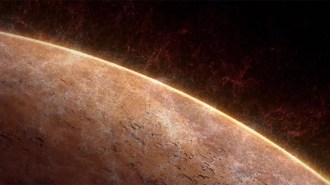 Planetary Science
Planetary ScienceChemical reactions high in Mars’ atmosphere rip apart water molecules
Mars is so dry because its water constant escapes into space. A new study suggests this process occurs in the ionosphere and faster than thought.
-
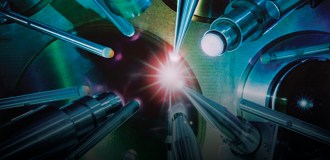 Physics
PhysicsGiant lasers help re-create supernovas’ explosive, mysterious physics
For the first time, scientists have re-created a type of shock wave that occurs in supernovas.
-
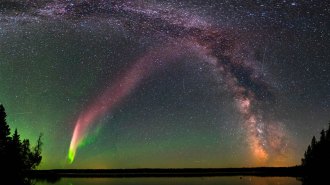 Earth
EarthSTEVE may be even less like typical auroras than scientists thought
The purple-and-green, atmospheric light show nicknamed STEVE just got even stranger.
-
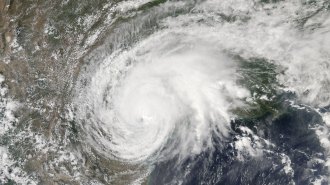 Climate
ClimateOnce hurricanes make landfall, they’re lingering longer and staying stronger
Warmer ocean waters due to human-caused climate change can help power hurricanes’ fury even after they roar ashore.
-
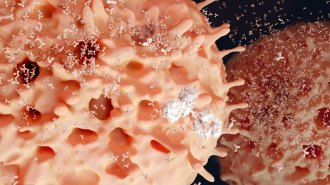 Health & Medicine
Health & MedicineProtecting the brain from infection may start with a gut reaction
In mice, immune cells in the meninges are trained to battle infections in the gut before migrating to the brain.
-
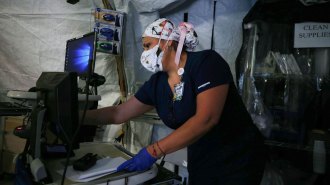 Health & Medicine
Health & MedicineCoronavirus cases are skyrocketing. Here’s what it will take to gain control
Basic public health measures can still curb COVID-19, if everyone does their part.
By Jonathan Lambert and Tina Hesman Saey -
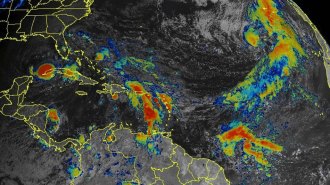 Earth
EarthWith Theta, 2020 sets the record for most named Atlantic storms
Climate change is expected to fuel fewer — yet more intense — Atlantic storms. With a whopping 29 storms but few strong ones, 2020 may be an outlier.
-
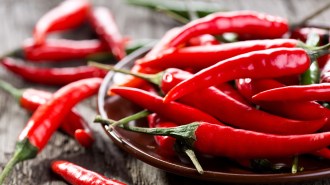 Chemistry
ChemistryA new portable device can reveal a chili pepper’s heat
The “Chilica-pod” measures levels of the fiery capsaicin compound in peppers.
-
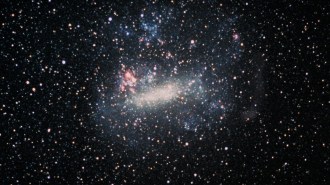 Science & Society
Science & SocietyThese are science’s Top 10 erroneous results
A weird form of life, a weird form of water and faster-than-light neutrinos are among the science findings that have not survived closer scrutiny.
-
 Health & Medicine
Health & MedicinePfizer’s COVID-19 vaccine is 90% effective, preliminary trial data show
An analysis of 94 COVID-19 cases shows that the mRNA-based vaccine can protect people from getting sick, though the trial is ongoing.
-
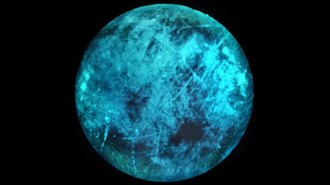 Space
SpaceJupiter’s icy moon Europa may glow in the dark
Europa’s potential “ice glow” could help scientists map the chemical composition of its surface — and the ocean underneath.
-
 Genetics
GeneticsPenicillin allergies may be linked to one immune system gene
Researchers have located a shared hot spot — on the HLA-B gene — in the immune system in people who say they have penicillin allergies.